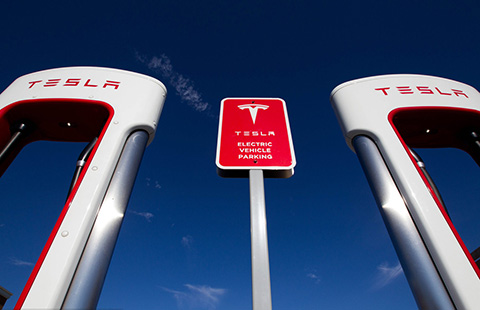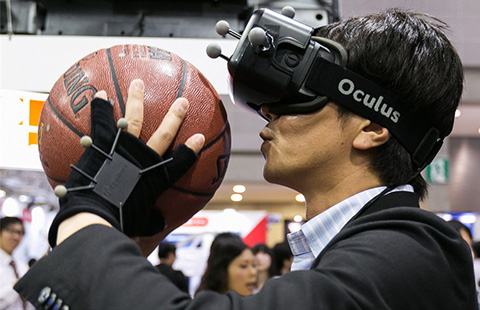'Can do' approach spurs Huawei's growth in Europe
By Cecily Liu in London (China Daily) Updated: 2012-11-30 12:51Speed of innovation is the key to Huawei Technologies Co Ltd's competitiveness in Europe, said Tim Watkins, the company's Western European vice-president.
"It's an approach that means Huawei never says 'it cannot be done'. We always say 'there is a way', no matter how difficult, no matter how many obstacles," Watkins said after the recent Economist Innovations Awards ceremony, which Huawei, China's largest telecommunications equipment maker, became the lead sponsor of last year.
"The key element of Huawei's innovation is to innovate with our customers. It's more effective to jointly innovate with our customers, rather than try to sell what you've innovated," he said.
One example he gave was Huawei's SingleRAN, a radio access network technology that allows mobile operators to support multiple mobile communications standards and wireless telephone services on a single network.
"We initially developed it mainly in conjunction with Vodafone. But it was so successful that it's now used by many operators pretty much everywhere in the world," Watkins said.
Huawei currently has almost 50 percent of its workforce dedicated to R&D and owns more than 18,000 patents, according to the company.
Watkins said that Huawei's emphasis on innovation is appropriate, particularly at a time when its price competitiveness is fast diminishing, as rival European telecommunications equipment makers are increasingly outsourcing production to China.
Most of Huawei's products are manufactured in China and assembled in Hungary, where production costs are cheaper than in many other European countries. In 2011, Huawei Europe's sales revenue exceeded $3.75 billion, a year-on-year increase of 26 percent.
Watkins said he is positive about Huawei's growth prospects in Europe, despite reports last month that it was being investigated by the UK parliament's intelligence and security committee.
The committee was "reviewing the whole presence of Huawei in regard to (the country's) critical national infrastructure and whether that should give rise for concern", The Guardian reported, citing Malcolm Rifkind, the committee's chairman.
"It's not a new investigation, it's just an ongoing monitoring. It became a magnified issue because of the American situation. But actually, the outcome - and we know, because we talk to the government - is that there is no issue, and the government is not really concerned," he said.
Rifkind confirmed last month that his team had been investigating Huawei's relationship with BT Group Plc for some months and will report its findings to UK Prime Minister David Cameron before Christmas.
The news came weeks after the US House of Representatives' intelligence committee issued a report advising US companies to avoid doing business with China's two leading technology companies, Huawei and ZTE, because it claimed that they posed a threat to US national security.
But Watkins said the UK committee's checks on Huawei have been taking place for years on a regular basis and only made news due to the attention being paid to the company in the United States.
"So if the UK government is asked 'what are you doing', it could not say 'nothing'. It has to say 'of course, we continue to evaluate Huawei'," he said.
In response to the investigation, BT has said there is no need to change its relationship with Huawei despite the increased scrutiny.
"BT takes a risk-management approach on the use of components from Huawei and, like the UK government, we see no need to change our position following the US report," a company spokesperson said last month.
Huawei has faced questions regarding its background because its founder, Ren Zhengfei, once worked for the Chinese military.
Such accusations are repeatedly refuted by Huawei. "It is a misunderstanding. It is not linked to the government, it's a private company, and it takes time for people to overcome and realize it's a private company," said Watkins.
cecily.liu@chinadaily.com.cn
- Huaxia Finance CEO wants to give hope to small companies
- Virtual vintners sink roots deep in China, unnerve wine importers
- Buying air conditioners online has become a fun task
- Sales, service, localization-the mantra for success of Shaanxi Automobile
- Air conditioners with 'geek spirit' to attract the young
- Smells are smart sensors' last frontier
- Lifelike product Jiajia that could redefine robots
- World's top 10 smartest companies


















